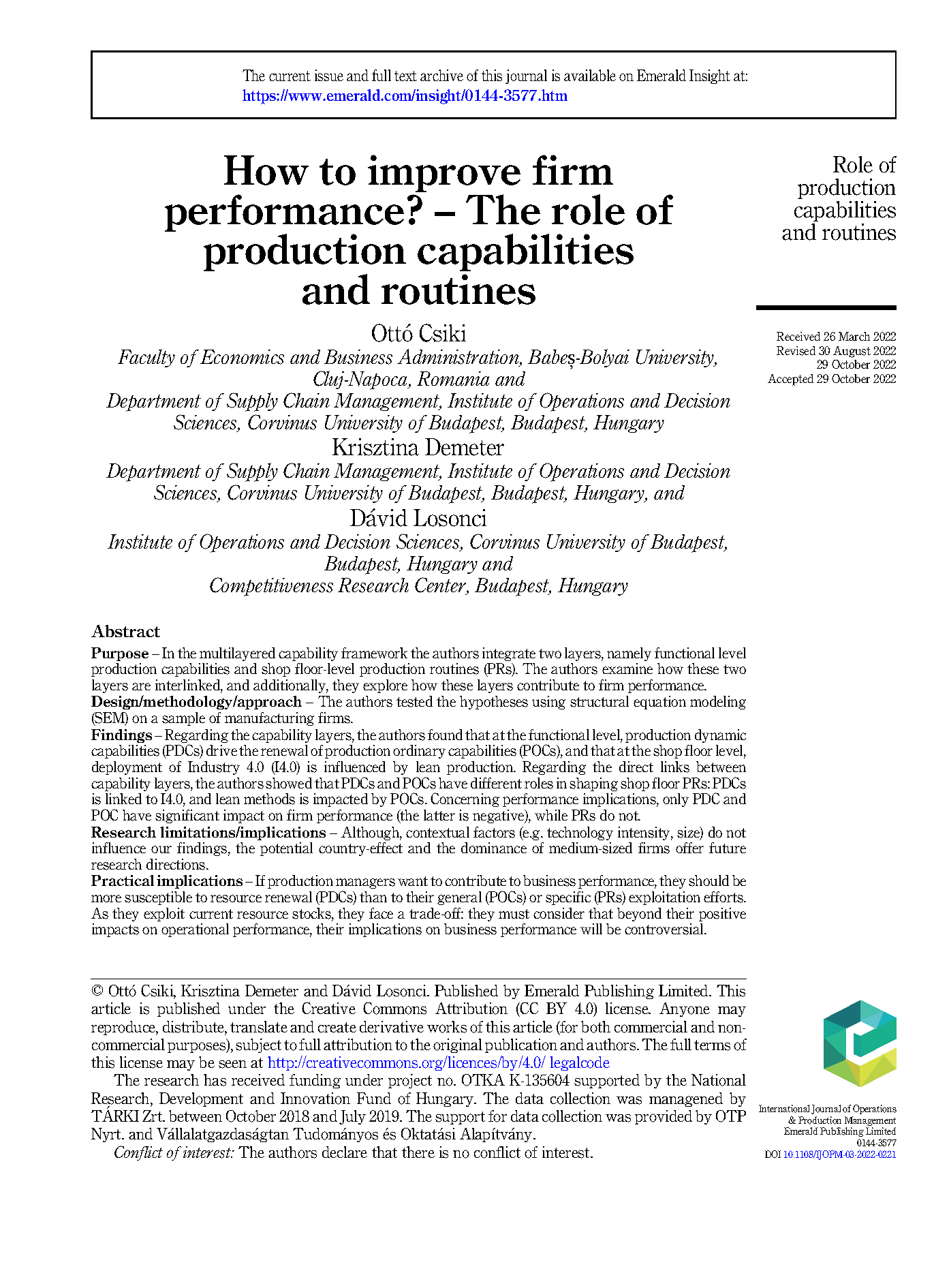|
|
|
Csiki, O., Demeter, K. & Losonci, D. (2023) International Journal of Operations & Production Management [Core Economics, Q1]
Autor:
Cristina Alexandrina Stefanescu
Publicat:
16 Ianuarie 2023
Csiki, O., Demeter, K. & Losonci, D. (2023) How to improve firm performance? – The role of production capabilities and routines. International Journal of Operations & Production Management, 43(13), 1-26.
DOI: https://doi.org/10.1108/IJOPM-03-2022-0221
✓ Publisher: Emerald
✓ Categories: Management
✓ Article Influence Score (AIS): 1.658 (2023) / Q1
Abstract: In the multilayered capability framework the authors integrate two layers, namely functional level production capabilities and shop floor-level production routines (PRs). The authors examine how these two layers are interlinked, and additionally, they explore how these layers contribute to firm performance. The authors tested the hypotheses using structural equation modeling (SEM) on a sample of manufacturing firms. Regarding the capability layers, the authors found that at the functional level, production dynamic capabilities (PDCs) drive the renewal of production ordinary capabilities (POCs), and that at the shop floor level, deployment of Industry 4.0 (I4.0) is influenced by lean production. Regarding the direct links between capability layers, the authors showed that PDCs and POCs have different roles in shaping shop floor PRs: PDCs is linked to I4.0, and lean methods is impacted by POCs. Concerning performance implications, only PDC and POC have significant impact on firm performance (the latter is negative), while PRs do not. Although, contextual factors (e.g. technology intensity, size) do not influence our findings, the potential country-effect and the dominance of medium-sized firms offer future research directions. If production managers want to contribute to business performance, they should be more susceptible to resource renewal (PDCs) than to their general (POCs) or specific (PRs) exploitation efforts. As they exploit current resource stocks, they face a trade-off: they must consider that beyond their positive impacts on operational performance, their implications on business performance will be controversial. Scholars usually examine one layer of capabilities, either capabilities or routines, and associate that with one dimension of performance, either financial and market measures or operational indicators. The authors propose a multilayered capability framework with a complex view on performance implications.

inapoi la stiri  vezi evenimentele
vezi evenimentele  home
home 
|